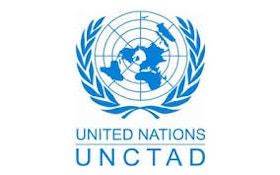In a world facing unprecedented challenges, the Global Supply Chain Forum (GSCF) 2024 is set to provide a crucial platform for leaders and experts to discuss the changing landscape of international trade and logistics. This first event of its kind, organised by the United Nations Conference on Trade and Development (UNCTAD) in collaboration with the Government of Barbados (Bridgetown, 21-24 May 2024), aims to shape the future of global trade in a rapidly evolving world.
In recent years, global trade has faced significant disruptions, from the Covid-19 pandemic to climate change and geopolitical tensions. These challenges have not only tested global supply chains but have also highlighted the urgent need for resilience and sustainability, particularly for developing countries.
The forum will feature an innovation challenge, aimed at inspiring solutions to make global production and distribution networks greener and more efficient and resilient.
Focus on resilience and sustainability
GSCF 2024 will focus on the vital role of global supply chains in promoting economic growth, job creation, and poverty reduction, aligned the 2030 Agenda for Sustainable Development.
The forum is part of a series of events to mark 60 years since the inception of UNCTAD, a fierce advocate of the Global South on the world stage. Recognising the disproportionate impact of supply chain disruptions on vulnerable economies far from the main lines of trade, especially Small Island Developing States (SIDS) and Landlocked Developing Countries (LLDCs), the forum will explore ways to strengthen resilience and sustainability in global supply chains, ranging from trade facilitation reforms to digital innovations.
The Covid-induced supply chain crisis hiked global consumer price levels by an additional 1.5 per cent as a result of increased maritime transport costs, UNCTAD research shows.
The impact was five times higher in SIDS, with an additional 7.5 per cent uptick in consumer price inflation.
Strengthening the backbone of global trade: seaports
Seaports play a crucial role in trade, facilitating over 80 per cent of global merchandise exchange. The forum will discuss strategies for enhancing the resilience of seaports, particularly in vulnerable coastal nations.
Additionally, digital solutions, including blockchain technology, will be promoted to address emerging risks and ensure the sustainability of global supply chains in the face of increasing e-commerce and cyber threats.
Global Collaboration and Bridging Gaps
GSCF 2024 will gather stakeholders from around the world to discuss pressing issues and explore innovative solutions. By aligning with conferences focusing on the unique challenges of SIDS and LLDCs, the forum aims to foster collaboration and highlight practical approaches to sustainable development and resilient transport.
More than 500 participants from some 100 countries are expected to attend, with over 100 entities having so far joined as partner organisations. These include national policymakers, key industry players and international organisations such as the International Labour Organization (ILO), the International Maritime Organization (IMO), and the UN Industrial Development Organization (UNIDO), among others.
Government ministers of transport will deliberate on a joint declaration, feeding into upcoming discussions at the UN’s 4th International Conference on Small Island Developing States set for late May in Antigua and Barbuda.
Relevant links
- Full information about the Global Supply Chain Forum 2024 is available here. See a video preview of key issues the forum will seek to tackle.
- “Navigating Troubled Waters”: Access the latest UNCTAD data, implications and policy recommendations examining unprecedented disruptions in two major global maritime trade waterways here.
About UNCTAD
UNCTAD is the UN trade and development body. It supports developing countries to access the benefits of a globalised economy more fairly and effectively and equips them to deal with the potential drawbacks of greater economic integration.
It provides analysis, facilitates consensus-building and offers technical assistance to help developing countries use trade, investment, finance and technology as vehicles for inclusive and sustainable development.
Publish your content with EB Premium
It's not about how many you reach. It's about who. Get your news, events, jobs and thought leadership seen by those who matter to you.


















